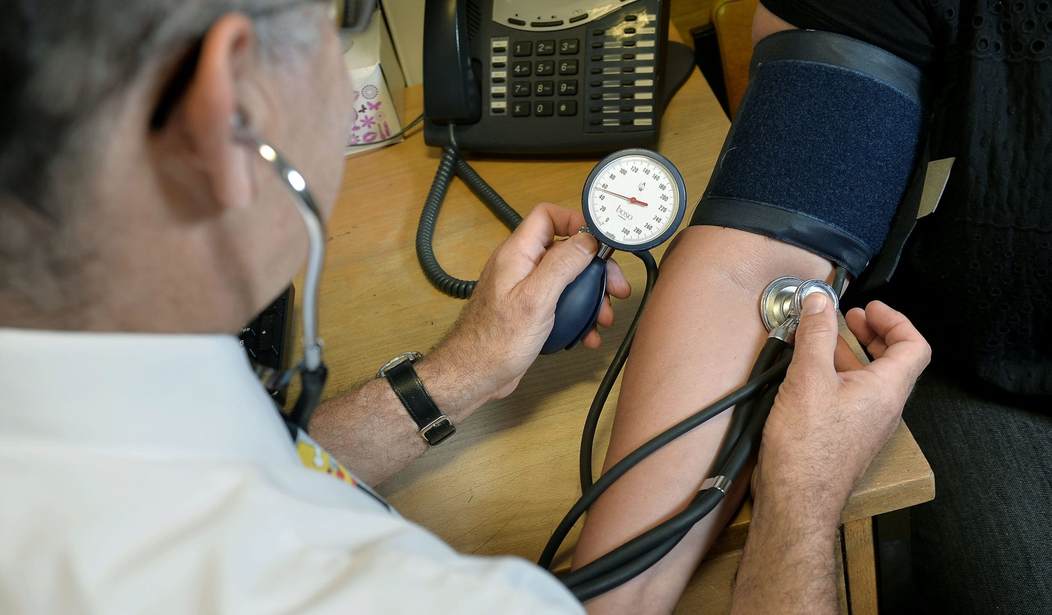WASHINGTON – There is no plausible argument that giving health insurance to the uninsured doesn’t help them both physically and financially, a Harvard physician argued Wednesday.
Benjamin Sommers, an associate professor at Harvard H.T. Chan School of Public Health, made his argument at the Cato Institute while describing some 40 studies that offer conflicting conclusions on whether greater access to healthcare actually improves physical health.
The Oregon Health Insurance Experiment is a widely cited study that began analyzing the expansion of Oregon public health insurance in 2008. Researchers studied Medicaid expansion and the impact on healthcare usage, physical outcomes and financial hardship for low-income adults.
While researchers have noted that healthcare use has increased and financial strain and depression have dropped, there isn’t any significant evidence to suggest that Medicaid expansion had any impact on physical health. The study is highly regarded because it analyzed randomized controlled trials, a method that is rarely available for social policy research. Oregon in 2008 offered Medicaid to low-income individuals through a lottery system, which allowed for the random selections.
The question is increasingly relevant because Congress is grappling over whether to implement Medicaid expansion under the Affordable Care Act or repeal Obamacare entirely. New research from Bernard S. Black, a law professor at Northwestern University, and other researchers shows that the uninsured use fewer healthcare services than the insured, but their health does not decline any more rapidly, nor do they die faster than their insured counterparts.
Black cautioned against Sommers’ argument, stating that Medicaid expansion and healthcare policy, in general, need greater evidence-based answers.
“I think we need more evidence-based policy and less faith-based policy,” Black said.
The Oregon study showed a significant increase in state hospitalizations, prescription medications, outpatient visits and emergency room visits, while expanded coverage saw spikes in medical debt and the elimination of risks of catastrophic medical expenditure. While depression, a leading cause of disability in the U.S., also saw a significant decrease, the expansion did not show any signs of driving down issues with blood pressure, cholesterol or cardiovascular risk.
As Black suggested, individuals who are insured may have significantly different health outlooks than the uninsured. The privately insured are traditionally wealthier, are in better health than the uninsured, and are less likely to smoke, be obese or drink heavily, he explained.
Sommers described statistics from various studies for which he’s been involved. One study analyzed Massachusetts healthcare reform in 2006, which is considered the precursor to the Affordable Care Act. The research group analyzed counties in the state and compared those counties to others throughout the U.S. that share similar demographics and mortality rates. Results showed that increased access to healthcare reduced mortality rates in Massachusetts by 2.9 percent.
“When you dig into that, it shows you a pattern exactly what you would see if health insurance were saving lives,” Sommers said.
The mortality reductions were found more in poorer counties, and the impact was mostly on preventable deaths, from conditions like heart disease, infection and diabetes. He also noted that there were no changes in mortality rates for those 65 and older, who were eligible for Medicaid and did not benefit from the healthcare expansion. He argued that there is a clear benefit to offering healthcare to the uninsured, though expansion should not be implemented in all cases.
“I’ve asked my patients how it feels to be uninsured. Most of them don’t like it, most of them think their health is better and their healthcare is better when they have insurance, and I think there’s a large body of evidence that makes the same claim,” Sommers said.









Join the conversation as a VIP Member